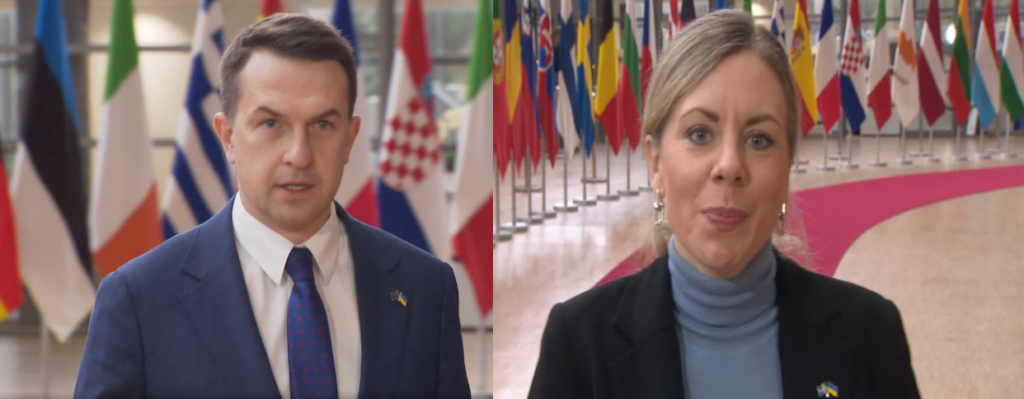Brussels – Ukraine will be in the EU immediately or as soon as possible, or maybe not. The European Union is determined to support Kyiv and show tangible closeness to the country Russia attacked, and membership seems one of those ways. However, there are divisions in the EU on achieving this outcome, and the issue is poised to spark debates among leaders at the two summits in March, with Ukraine at the center of discussions. At least six member states would like to speed up the enlargement negotiations; the others are holding back, with the Polish Council presidency unwilling to press the accelerator.
“The Nordic countries and the Baltic states would like to see as many negotiating chapters open as possible, preferably all of them,” Jessica Rosencrantz, Sweden’s Minister for European Affairs, sounded off at the General Affairs Council meeting dedicated to preparing for the March 20 summit of heads of state and government. Denmark, Finland, Sweden, Estonia, Latvia, and Lithuania would like the EU to live up to its intentions and promises to open the accession process by March and accelerate the process that is needed to bring Ukraine into the EU. Poland supports this proposal in principle, but the situation calls for caution

“We are determined to support Ukraine and advance the enlargement path,” said Adam Szlapka, Poland’s minister for the European Union, whose government holds the rotating presidency of the EU Council. However, he adds, “there is no unanimity” in this regard and, therefore, “I am not going to commit to any dates.” A consensus still has to be built and found. It will take time, which is difficult to quantify. The Polish presidency makes no secret that “it will be a difficult discussion” on Ukraine’s EU accession negotiations, which brings with it the issue of borders.
Among the leaders who doubt Ukraine’s entry into Europe is the Hungarian prime minister, Viktor Orban. The latter publicly raised the issue of borders, which are unclear due to occupied and disputed territories, making membership impractical. The EU line does not change on this. “The European Union recognizes Ukraine in the borders before the 2014 war,” Szlapka said. That means Donbas and, more importantly, Crimea. A position that fits into the peace process that US President Donald Trump and the European Union itself want to work on. However, the EU continues to waver on Ukraine.
English version by the Translation Service of Withub







